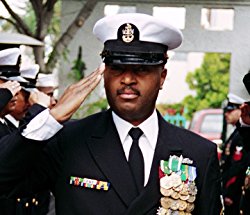A Quote by Malcolm Nance
There are no military options for Iran. Attack them, and they will destroy the Gulf States oil industries, rain hundreds of missiles onto Israel, close the Arabian Gulf, and shoot oil prices to $300 per barrel, which could cause our own economic downfall.
Related Quotes
Americans once believed that their prosperity and way of life depended on having assured access to Persian Gulf oil. Today, that is no longer the case. The United States is once more an oil exporter. Available and accessible reserves of oil and natural gas in North America are far greater than was once believed. Yet the assumption that the Persian Gulf still qualifies as crucial to American national security persists in Washington. Why?
By accident of geography, the world's major oil resources are in Shi'ite-dominated areas. Iran's oil is concentrated right near the gulf, which happens to be an Arab area, not Persian. Khuzestan is Arab, has been loyal to Iran, fought with Iran not Iraq during the Iran-Iraq war. This is a potential source of dissension. I would be amazed if there isn't an attempt going on to stir up secessionist elements in Khuzestan.
The climate, financial and national security crises are all connected. They share the same cause: Our [the USA's] absurd dependency on foreign oil. As long as we need to spend billions of dollars each year to buy foreign oil from state-run oil companies in the Persian Gulf, our problems of a trade deficit, a budget deficit and a climate crisis will persist.
Bahrain lies at the epicenter of Gulf security and any violent upheaval in Bahrain would have enormous geopolitical consequences. Global economic stability depends on the uninterrupted export of crude oil from the Gulf to markets around the world - a job that historically has been assigned to the U.S. Fifth Fleet.
I have no problem with a war for oil-if we accompany it with a real program for energy conservation. But when we tell the world we couldn't care less about climate change, that we feel entitled to drive whatever big cars we feel like, that we feel entitled to consume however much oil we like, the message we send is that a war for oil in the gulf is not a war to protect the world's right to economic survival-but our right to indulge. Now that will be seen as immoral.

































